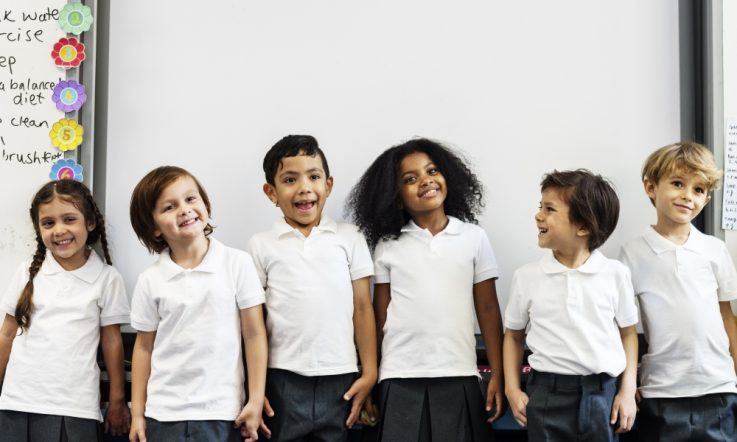We know that creating strong partnerships are important in lifting outcomes, and we know from educator feedback that they find it easy to talk to families about a child’s strengths but it’s harder to have conversations about areas of difficulty. How did the Trusting Partnerships resource evolve?
We have all been practicing educators who have worked with students from age 3 to adulthood. We all acknowledge that working with families has often been a big part of our teaching role. We were fortunate enough to support and mentor other educators when they were arranging to have conversations with families in their educational program. I (Simone) noticed how I and other educators found forming partnerships with families to be a challenge at times and how having difficult conversations with families was often an anxiety-inducing experience. In 2022, I was completing a Masters in Learning Intervention and as part of my research capstone I decided to focus on ‘Partnerships in Early Childhood Education’. I completed a literature review which looked at early learning and education services in Australia. Throughout the review it became evident that there were gaps in existing research regarding educator and parent partnerships. The research also revealed that educators often struggle to know how to have difficult conversations with families about a child’s learning and development.
We have since worked together to create a prototype of a resource called Trusting Partnerships which we hope to continue to develop with internal and external funding. We have been fortunate enough to present this resource at the ACER Research Conference, the Little People Big Dreams Conference, and the Early Childhood Australia Conference, where we consulted with other educators, teachers, policymakers and educational organisations to further refine the resource.
‘Partnership’ can mean all sorts of things in different contexts. From your research, are there common issues when defining partnerships between educators and families?
As mentioned, evidence from the literature review showed that there are gaps in existing research regarding educator and parent partnerships, particularly supporting educators to collaborate with families. We surmised that an explanation for these gaps could be how educator and family partnerships are defined.
Researchers have highlighted that the term ‘partnerships’ is often used interchangeably with terms like ‘parent involvement’ and ‘parent engagement’. Therefore, these definitions can result in confusion as they can shape what educators and parents’ roles are in the partnership and the steps they can take to form trusting, collaborative relationships.
We tested this theory in our conference presentations where we asked participants to define partnerships using 4 words. The most commonly used words to describe partnerships by ACER conference delegates were ‘child’, ‘shared’ and ‘support’, whereas participants at Little People Big Dreams conference chose ‘collaboration’, ‘trust’ and ‘respect’. This activity supported the theory that there are many ways to define partnerships, and that it can vary depending on an individual’s role, workplace, and personal values.
Even before educators get to the point of a conversation with families, I’m guessing there are foundations that need to be in place, to give those conversations the greatest chance of being successful and constructive. What needs to be in place at a centre or school for the Trusting Partnerships approach to work?
Understanding that families are pivotal in the lives of their children, and that they should be empowered to engage in decision-making about them, is critical to the success of any approach to build a genuine partnership. After exploring ecological systems and social exchange theories, we found compelling reasons for developing an agreed upon framework for the whole school in order to develop genuine partnerships with families. We then researched how a Family-Centred Practice can be used as a model of partnership.
It is important to note that schools do not need to use this specific model, but if a similar philosophy is accepted by everyone at the school, then we believe that educators can have more successful conversations with families, even when the conversation is of a sensitive nature. We could go into so much detail about a Family-Centred Practice model, but the main takeaways are that this practice is underpinned by the philosophy that families are pivotal in the lives of their children, and they should be empowered to engage in decision-making for their children. More information is available in this paper (Cohrssen et al., 2010) (PDF, 460KB).
Educators will know from their own experience, of perhaps meetings with colleagues and conversations with children, that language is important. How does the resource you’re developing help educators and leaders to use language appropriately?
As educators, we will work with families with different values, beliefs, cultural knowledges, resources, and parenting styles. However, we need to remember that parent partnership is not parent education, which assumes to correct parents’ current strategies and knowledge. It is instead about co-education or learning together. We need to present ourselves as a facilitator, rather than an expert, who is seeking the valuable contributions of parents. The focus should be on negotiating solutions rather than advising parents about child rearing or expecting parents to conform to our expectations.
We believe that these conversations need to be done with empathy, understanding and sensitivity. The Trusting Partnerships resource we are developing supports educators to prioritise their concerns about a child’s learning or development and then find common ground with families.
How can educators establish common ground and agreement on the way forward in working toward a good outcome for the child?
An educator’s desire to support the child’s learning and development is their first point of agreement. Educators and families can find a shared understanding about a child and then the agreed next steps can be more easily followed through with. It is imperative for educators to ask families about how they observe their child in their home environment and when they are out in the community. Is it also important to ask what supports their child might need at home. We have found that by opening this conversation to families, a more holistic and trusting partnership can develop.
When an educator discusses strategies or adjustments they have put in place for the child at school, these can be discussed with families to see if they have ways to support these areas at home. We can’t expect families to implement all of the strategies, but by discussing them together it can help families to see their important role and this process supports shared decision making. These discussions can also support a follow-up prompt, where educators can ask families how they would like to be updated on how the strategies are working. This follow-up prompt also supports timely modifications of strategies and is a way to provide clear evidence when internal school or external allied health support is needed.
What if the conversation really isn’t going well? Should educators just push through and keep going?
We know that there are times when a parent is not ‘ready’ to hear about the challenges their child might be having, and this can make the discussion more challenging. There are many reasons that a conversation or meeting may stop before all of the information has been shared. Often in these conversations a parent or family member has become upset and by continuing with the conversation it would only fracture the relationship. Our resource plans to guide educators to listen out for phrases and body language cues for when to proceed in the conversation and for when to stop and try and rebuild the partnership. Knowing when to end a conversation because it is not productive to keep going, gives you the option of reintroducing it – potentially in a different way – at a later time.
You’re working on a pilot project to support educators in this important aspect of their work. What’s happening with that project, and how can schools and ECEC services potentially get involved?
Firstly, we would like to acknowledge the previous work done by all the researchers who have helped this work come to fruition. We are hoping to have the Trusting Partnerships resource finalised, which includes continuing to synthesise feedback from conferences, to run the pilot in 2024. For participating schools and Early Childhood services, training will be provided to educators in how to use the resource. We will also discuss the family partnership frameworks in place at the school or ECEC service. The training will specifically focus on how to have difficult conversations with families and how to find common ground.
Educators at participating settings will trial the resource in their own practice and be asked to provide feedback on how well it worked, where it didn’t work, and any advice for amendments to the resource. The research team will then analyse this feedback and make adjustments to the resource. It will be published with administration and interpretation guidelines, including prompts for what to do when conversations become uncomfortable and unsafe.
If you would like to be involved in the development of the Trusting Partnerships resources, or potentially piloting it at your school or ECEC service, email simone.griggs@acer.org
References
Cohrssen, C., Church, A., & Tayler, C. (2010). Victorian Early Years Learning and Development Framework Evidence Paper. Practice Principle 1: Family-Centred Practice.
The experts in this Q&A discuss the idea of a follow-up prompt, where educators can ask families how they would like to be updated about the success of strategies that you’re employing in the classroom to support their child. Is this something you already do? If not, how will you introduce it into your own practice?



